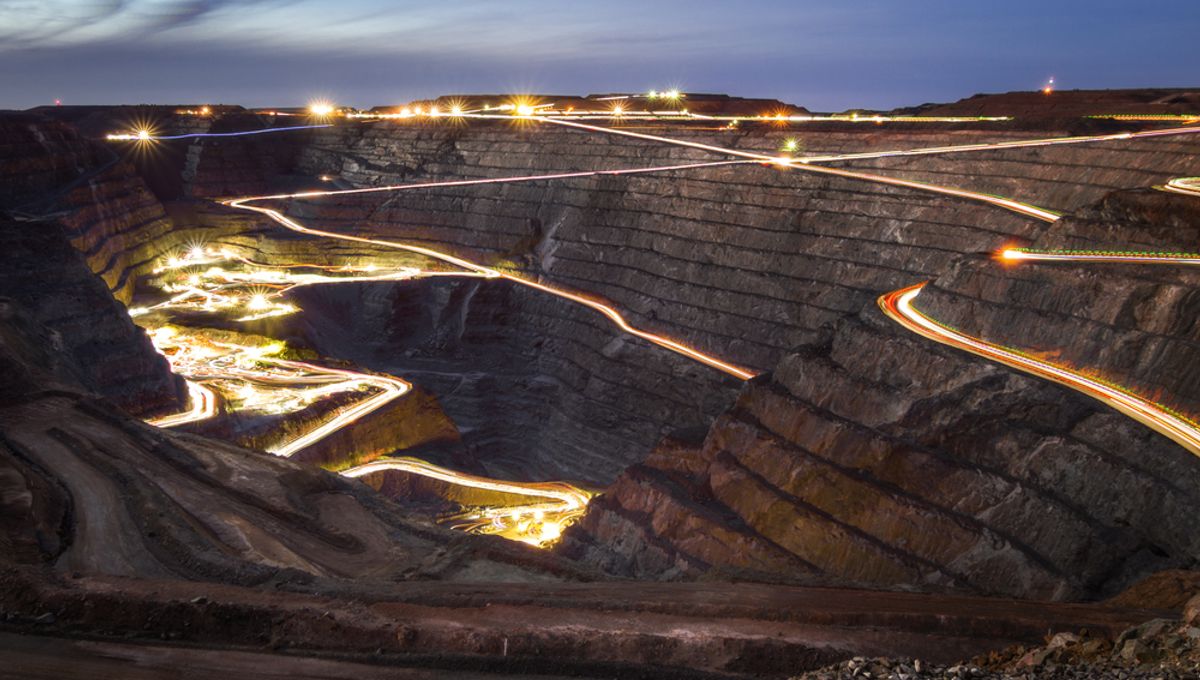
We’re living on a finite planet while expecting infinite economic growth. It doesn’t require an economist to explain there are some problems with this assumption. But is it possible that we could totally exhaust some of the mineral and metal resources that are fundamental to the infrastructure and lifestyles of the 21st century, whether it be gold, iron, rhenium, or selenium?
Simply put, humans consume minerals faster than they can be replenished. It takes thousands, perhaps millions, of years for geological processes to forge mineral deposits, but we churn through our reserves as if they’re supplied by an endless foundation.
By some estimates – which remain controversial – our voracious consumption of some metals could mean the supply will run out within 50 years or less.
Iron is the fourth most common element in the Earth’s crust, although much of it is locked deep away and only a fraction is accessible in the form of iron ore. In 2022, it was estimated that Earth holds approximately 180 billion metric tons of crude iron ore worldwide, with a total iron content of some 85 billion metric tons. It may sound like plenty, but it won’t last forever.
Writing the book PLAN B 3.0: Mobilizing to Save Civilization [PDF], Lester Brown made the huge claim that iron ore could run out by the year 2062. Likewise, he argues supplies of other important mineral reserves, like lead and copper, could be depleted in the coming decades.
Writing in 2008, Brown said: “Assuming an annual 2-percent growth in extraction, US Geological Survey data on economically recoverable reserves show the world has 17 years of reserves remaining for lead, 19 years for tin, 25 years for copper, 54 years for iron ore, and 68 years for bauxite.”
However, this is on the extreme end of the argument. Other studies have concluded that depletion of metals is significantly less likely than Brown’s sensational estimates. Of course, it’s also possible to recycle iron, as well as its derivatives like steel, meaning its crust-bound reserves are not the be-all-and-end-all.
A 2021 study argues that the main metal that risks being totally depleted in 100 years is copper. Six other resources are likely to be exhausted between 100 and 200 years: antimony, gold, boron, silver, bismuth, and molybdenum, while nine resources have an exhaustion period of between 200 and 1000 years: indium, chromium, zinc, nickel, tungsten, tin, rhenium, selenium, and cadmium.
Other scientists have contended that mineral depletion is not a concern that should keep you up at night. Some believe that we have literally just scratched the surface of Earth’s mineral supplies. The vast majority of mined deposits have been found at depths just 300 meters (984 feet) within the crust, but it’s evident that deposits can be found much deeper.
As technology continues, it’s likely we will be able to exploit these deep reserves. The issue, however, is whether we can obtain them in a way that doesn’t harm the planet or people. After all, mining doesn’t exactly have the best track record when it comes to preserving the planet.
“Do not confuse the mineral resources that exist within the Earth with reserves, which are mineral resources that have been identified and quantified and are able to be exploited economically. Some studies that predict upcoming shortages are based on statistics that only take reserves into account, i.e. a tiny fraction of the deposits that exist”, Lluis Fontboté, a Professor in the Department of Earth Sciences at the University of Geneva who studied this issue in 2017, said in a statement.
“The real problem is not the depletion of resources, but the environmental and societal impact of mining operations”, added Professor Fontboté.
Source Link: What Minerals And Metals Might Humans Deplete On Earth?